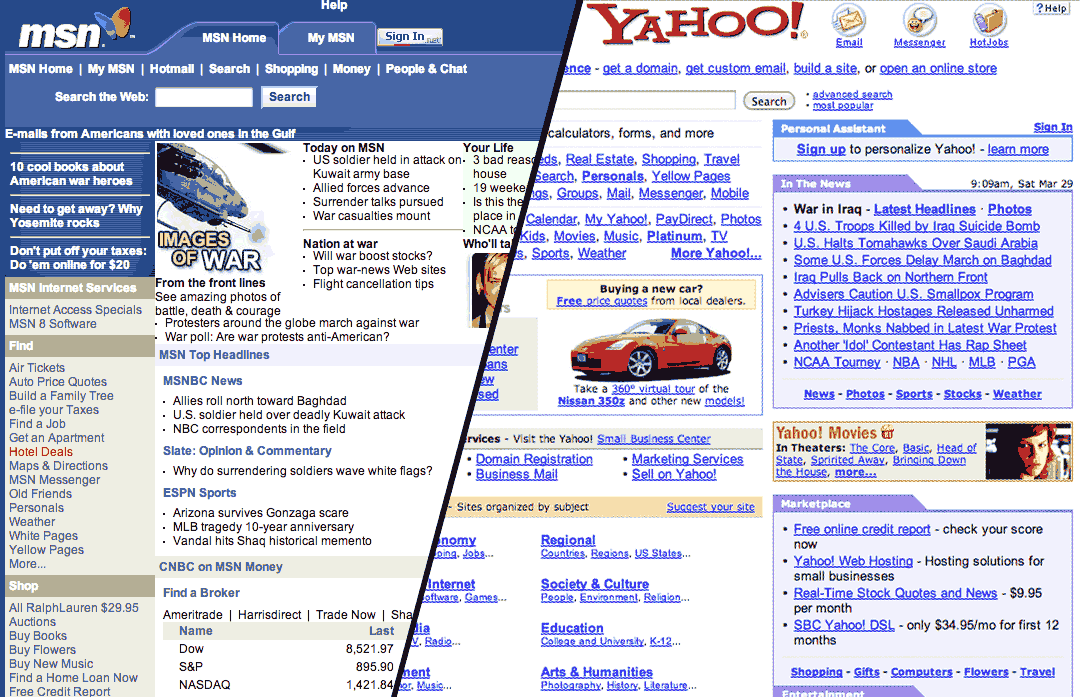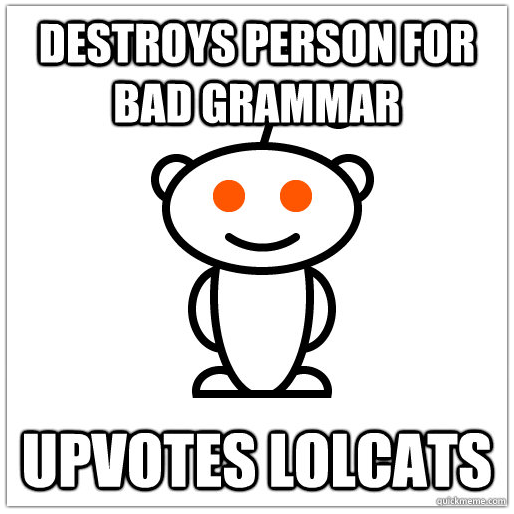Thoughts on a decade of digital media
Ten years ago, I had barely begun to use Google. I was using Search.com (run by C|Net) to explore the web, simply because I had guessed the URL one day and had never heard of other search engines. Lately, I've been reflecting on the state of digital media today, how I got here, and whether I'm more satisfied now than in the past about what kind of information I have access to. In the last ten years, entire communication patterns and social norms have been rewritten. That's exciting to think about.
Where I'm at
The web today is a delicious soup of services, all interacting and competing simultaneously. To illustrate this, I'll tell you the story of how I heard about Google Reader's demise (which in itself is an important milestone in the history of the Web).
As I remember it, I first heard the news from a Tweet by Andrew Coyne. I then opened a new tab and searched for "google reader shutting down", which brought me to a Google blog post explaining the decision. After reading the post, I hit up Ars Technica and Mashable to read more about the news. Then I talked about it on Twitter for a bit. I considered posting about Google Reader on Facebook - no, too techy - and then went to see what my favourite third-party Google Reader app, Reeder, had to say about it on Twitter. Later in the day, I came across a good discussion of the issue on /r/webdev.
This is how I consume and interact with media - bouncing around like a ping-pong ball in a chaotic flurry of information. The pace of change in digital media is astounding. New platforms for content are being created all the time, and it's tough to decide what not to read. Personally, I'm looking for a way to separate signal from noise. I waste so much time reading and responding to content that just goes in one ear and out the other.
I'm at the point now where I crave curation, which is why I recently picked up a copy of Alternatives Journal. A bimonthly, dead-tree publication. Think about that. A paper magazine won out over the torrent of information available on the internet. Why? I know that it will have staying power - the content in this magazine needs to be relevant for at least two months. The prospect of trusting in someone else's editorial judgment, is more attractive than desperately scouring social media for the Next Big Thing.
How I got here
Ten years ago, news portals were the de facto gatekeepers of the internet. Most people had a website like Yahoo! or MSN as their homepage. These websites adapted the concept of a literal front page from broadsheet newspapers, making the transition to online media comfortable and familiar.

In the mid-to-late 2000s, blogging came to the fore. A source of independent news and commentary, free from the shackles of the corporate media structure, people took to livejournal or blogger to voice their opinions rather than write a letter to the editor. This is also what I would call the first instance of social media, because comments allowed readers to leave unfiltered remarks and generate discussion.
Facebook took the best parts of the blog - comments and freedom from editorial control - and made it easier to write, share, and discuss with family and friends. Facebook's insistence on building upon real-world relationships is what began to bridge the gap between the Internet and the so-called real world.
Twitter burst on the scene at the end of the decade, quickly becoming an explosive force in digital media. The service's character limit lends itself well to headlines and pithy quotes, making back-and-forth debate easy. By mainstreaming the use of hashtags, Twitter created an environment that is organised by topic, rather than personal relationships. For some types of media coverage, namely political punditry and sports, where minute-by-minute reporting makes sense, Twitter has become a dominant medium for discussion.
There are now more than 200M monthly active @twitter users. You are the pulse of the planet. We're grateful for your ongoing support!
— Twitter (@twitter) December 18, 2012
The problem with Twitter is that a lot of noise and spam can drown out interesting discussion - especially when you're browsing a broad hashtag like #cdnpoli.This is where sites like Reddit (and Digg before it) shine. Using a voting system to implement democratic quality-control is a genius move, and does help to filter out some of the crap. However, it still has the problem of staying power: just because something is popular now doesn't mean it's important, quality content.

What's next?
Reddit is good, but doesn't possess the editorial prowess of a good magazine or newspaper. So very recently, I've begun to see the rise of more strictly-curated writing networks like Svbtle and Medium. Is this the way forward? I think it could be. These networks implement a degree of democratic ranking, while still requiring writers to earn their chops before being published.
The question is, how will the dust settle for online media? Are these curated networks taking us back to the portal days of 2003? Or are they the end product of a decade-long attempt to recreate the experience of quality journalism?
Personally, I want to see more editorial control in digital media. I want to visit websites I trust and know that any article I click on will be a worthwhile read. I want to consume content with staying power. Will it happen? I don't pretend to know, but I sure hope so.
The Internet is a crazy place. Here's to the next ten years.
Sam Nabi